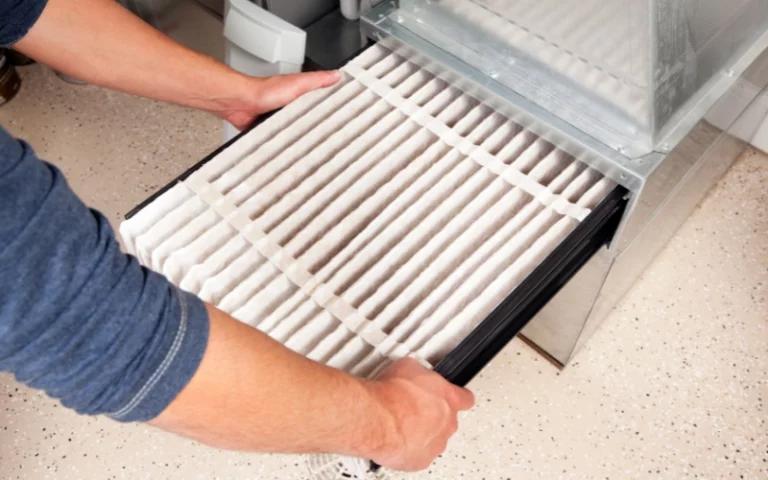Understanding the differences between boilers and furnaces is crucial when choosing a heating system for your home or building. This article compares these two systems, discussing their distinct features, advantages, disadvantages, various applications, and fuel options. While recognizing the benefits of both, the focus will be on the unique advantages of boilers to inform your decision-making process in heating solutions.
Table of Contents
Basic Definitions and Functionality
What is a Boiler?
A boiler is a heating system that uses hot water or steam to heat a space. Water is heated in a central boiler and then circulated through pipes to radiators or underfloor heating systems. The heat is then radiated into the room.
Types of Boilers: Boilers come in various types, including combi boilers, which provide hot water and central heating, system boilers with a separate cylinder for storing hot water, and conventional boilers that require a cold water tank and a hot water cylinder.
What is a Furnace?
A furnace is a type of heating system that heats air and distributes it throughout the building using a network of ducts and vents. The air is heated by burning fuel or using electricity and then forced through the ductwork by a blower.
Types of Furnaces: Furnaces are primarily categorized based on the fuel they use, such as gas furnaces, oil furnaces, and electric furnaces. Each type has unique characteristics in terms of efficiency, cost, and installation requirements.
Comparison of Boiler and Furnace
A. Operational Mechanism
How Boilers Work: Boilers heat water or create steam, which is then circulated through pipes to radiators or underfloor heating systems. The heat is emitted from these elements, warming the room evenly and efficiently.
How Furnaces Work: Furnaces heat air directly and then distribute this warm air through a network of ducts and vents. The air is blown over a heat exchanger and pushed into various rooms, creating a flow of warm air.
Key Differences Between Boilers and Furnaces
Heating Method and Distribution: Boilers provide radiant heat, which heats objects and surfaces, offering a more consistent and comfortable warmth. They don’t circulate air, reducing the movement of dust and allergens.
Furnaces heat air and use a blower to distribute it. This can lead to uneven heating and can circulate dust and allergens.
Installation and Space Requirements: Boilers require a network of pipes and can include radiators or underfloor heating systems. They often need more space for the boiler and potentially a hot water tank.
Furnaces require ductwork throughout the building, which can be more intrusive and limit their use in buildings without existing duct systems.
Efficiency and Performance: Boilers are generally more energy-efficient as they use water as a heat transfer medium, which retains heat better than air. Modern boilers can also achieve high efficiency ratings.
Furnaces can vary in efficiency. Newer models are more energy-efficient than older ones, but they typically lose more heat through the ductwork compared to boiler systems.

Pros and Cons of Boilers and Furnaces
Advantages of Boilers
Energy Efficiency: Boilers are generally more energy-efficient, especially modern condensing models, which can have very high efficiency ratings.
Quality and Consistency of Heat: They provide consistent, radiant heat that doesn’t fluctuate much, offering a comfortable indoor environment.
Lower Noise Levels: Boilers operate quietly compared to furnaces as they don’t involve blowing air.
Improved Air Quality: By not relying on forced air systems, boilers minimize the circulation of dust, allergens, and other airborne particles.
Durability and Maintenance: Boilers have fewer moving parts, leading to a longer lifespan and potentially lower maintenance requirements.
Disadvantages of Boilers
Initial Cost and Installation: The upfront cost of purchasing and installing a boiler can be higher than a furnace.
Slower Heat Increase: Boilers may take longer to heat up a space, as they rely on heating water and then the room.
Space Requirements for Some Models: Some boiler systems, especially older ones, may require additional space for a hot water tank.
Advantages of Furnaces
Lower Initial Cost: Furnaces generally have a lower initial purchase and installation cost than boilers.
Quick Heating: Furnaces can heat up a space more quickly than boilers.
Flexibility in Fuel Types: Furnaces can run on various fuels like gas, oil, or electricity, offering flexibility based on availability and cost.
Disadvantages of Furnaces
Air Quality Concerns: Furnaces can circulate dust and allergens throughout the home, which may affect indoor air quality.
Uneven Heating: The air heated by furnaces can lead to uneven temperatures within a room or building.
Noise Levels: Furnaces can be noisier due to the air being forced through ductwork.
When to Choose a Boiler
Larger Spaces and Multiple Rooms: Boilers are ideal for larger homes or buildings with multiple rooms. The radiant heat they provide can evenly warm large spaces and multiple zones efficiently.
Need for Consistent and Allergen-Free Heating: If indoor air quality is a concern, especially for allergy sufferers, boilers are a better choice as they don’t circulate air and, consequently, allergens.
Preference for Radiant Heat: For those who prefer the comfort of radiant heat, which heats objects and surfaces for a more consistent temperature, boilers are the superior choice.
When to Choose a Furnace
Smaller Homes or Budget Constraints: In smaller homes or where budget is a significant consideration, furnaces can be a more cost-effective and practical option.
Rapid Heating Requirements: For quick heating needs, such as in climates where temperatures drop rapidly, furnaces can provide immediate warmth.
Availability of Specific Fuels: In areas where certain fuels are more readily available or economical (like natural gas or oil), a furnace that runs on that fuel might be more practical.
Fuel Options for Boilers
Natural Gas: One of the most common and efficient fuels for boilers. Gas boilers are known for their high efficiency and cost-effectiveness in areas where natural gas is readily available.
Oil: Oil-fired boilers are an option where natural gas isn’t available. They are less efficient than gas boilers but are a viable alternative in rural or remote areas.
Electricity: Electric boilers are highly efficient at the point of use, converting almost all the electricity into heat. They are a good option in areas where electricity costs are low or where other fuels are not available.
Biomass and Renewable Options: Biomass boilers, which burn wood pellets, chips, or logs, are eco-friendly and renewable. They are becoming more popular in areas with ample biomass resources.
Fuel Options for Furnaces
Gas Furnaces: Gas is the most common fuel for furnaces, especially in urban areas. Gas furnaces are efficient and have lower operating costs compared to oil or electric furnaces.
Oil Furnaces: Used where natural gas is not available. They require more maintenance and are less efficient than gas furnaces but are a necessary alternative in certain areas.
Electric Furnaces: They are 100% efficient at the point of use but can be expensive to operate depending on electricity prices. Suitable for areas without gas or oil supply.

Why Boilers Might Be the Better Choice
Long-term Cost-effectiveness: While the initial installation of a boiler can be higher, the long-term savings due to higher energy efficiency can be substantial. In areas with lower gas prices, the savings are even more pronounced.
Superior Comfort and Heat Distribution: Boilers provide a more even and consistent heat compared to furnaces. The radiant heat from a boiler heats the entire room uniformly, eliminating cold spots and providing a more comfortable living environment.
Environmental Considerations: For those concerned about their carbon footprint, boilers, especially those using renewable sources like biomass, are more environmentally friendly. They operate more efficiently and with lower emissions compared to most furnaces.
Situations Where Boilers Outperform Furnaces
In Homes with Allergy Sufferers: Boilers do not circulate air, thus reducing the spread of allergens and dust. This can be a significant advantage for households with allergy sufferers.
In Larger Homes with Multiple Rooms: Boilers are particularly efficient in larger homes where consistent heating across multiple rooms is desired. The ability to control zones can also lead to energy savings.
In Regions with High Electricity Costs: In areas where electricity is expensive and natural gas is cheaper, a gas boiler can offer significant savings on energy bills.
For Enhanced Durability and Lower Maintenance Needs: Boilers have fewer moving parts than furnaces, leading to a longer lifespan and potentially fewer repair costs.
Summary
Boilers offer a consistent and comfortable heating experience, making them ideal for larger homes, allergy sufferers, and those looking for a more eco-friendly heating solution. Although the initial investment might be higher, the long-term savings and benefits can make boilers a wise choice for many homeowners.
Ultimately, the decision between a boiler and a furnace will depend on individual needs, the size and layout of the property, local fuel availability, and personal preferences towards energy efficiency and environmental impact. With advancements in heating technology, homeowners now can choose a system that not only meets their heating needs but also aligns with their values and lifestyle.




